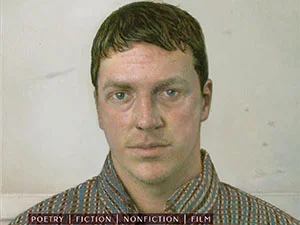Bennington Review, Issue Eight: Fame and Obscurity
Bennington Review—a national biannual print journal of innovative, intelligent, and moving poetry, fiction, creative nonfiction, and film writing housed at Bennington College—has released its eighth issue, around the theme of “Fame and Obscurity.”

From the editor's note, by Editor Michael Dumanis and Managing Editor Katrina Turner:
"Dear reader, this loud and gleaming volume of new poems, essays, and stories is a few months late in leaving us and making its way to you. This latecomer is our only issue of 2020—we will have three issues to share with you in 2021, and expect to resume a twice-a-year schedule thereafter.
"We began assembling Issue Eight in the relatively innocent twilight of 2019, before we had any inkling of the uncertainty and despair and new way of life that has challenged, cost, and charged so many of us so unrelentingly. And this soon-to-be infamous calendar year 2020 is still, at the moment, with us, taking its various tolls. It is possible that by the time you read these words, an election will have been decided, an epidemic will have been contained more so than now, and fewer of us will be feeling this vulnerable, this anxious, unheard, unnoticed. And it is equally plausible that when you sit down with this magazine, reader, things seem bleaker, even more destabilizing and cheerless. We here communicating with you from the recent past sincerely hope it is not so.
"The painting on the cover, David, a self-portrait by David Gracie, shares its title with Michelangelo’s much-ballyhooed nude marble extravaganza that any first-time visitor to Florence feels pulled to stand in line to see and photograph—though of course they will inevitably see it before they see it, reduced onto flimsy 4x6 card stock on rotating display racks, emblazoned on white T-shirts, decorating mugs, and replicated elsewhere in Florence through statue-sized replicas serving as decoys. And, paradoxically, it is impossible for anybody to actually see Michelangelo’s David—not outside of the context of its celebrity, outside of the history of the figure ritually flocked to and fawned over.
"The David depicted by David Gracie, on the other hand, is highly visible despite his obscurity, pushed up against a wall and making eye contact, seeing us. This David is anonymous if not for his having been named, unremarkable and yet utterly singular in the way his face holds and communicates emotion, exhaustion, existence, refracting the interiority of a particular person in a particular shirt.
"Among the multifarious array of texts before you are various examinations of who gets noticed and who gets ignored, and why, and how, on notoriety and anonymity and one’s inability to be seen, on what it means to exist under a spotlight or near a spotlight but never quite in it, on why some things stay looked at and remembered while others quickly become obscured and
forgotten. Celebrity may be transient, but it also has the capacity of becoming a contagion that obscures why somebody turned their head and paid attention in the first place.
"So wherever and however this issue discovers you, reader, we hope the work in it serves as an invitation for you to turn your head as if for the first time, to pay attention, to notice, to see."
This issue features poetry by Brent Armendinger, Amanda Auerbach, Jenny Browne, Oni Buchanan, jayy dodd, Izzy Casey '17, Robert Fernandez, Jennifer Hasegawa, Valerie Hsiung, Troy Jollimore, David Kirby, former Bennington Writing Seminars faculty member David Lehman, Erika Meitner, Miguel Murphy, Daniel Nester, Kathleen Ossip, Emily Pettit, Sean Singer, Ed Skoog, and Elizabeth Willis; fiction by Lucy Corin, David Crouse, Cynthia Cruz, Nicholas Delbanco, Marcos Giralt Torrente, and Bennington Writing Seminars faculty member Stuart Nadler; nonfiction by recent visiting faculty member Elisa Albert, Kelle Groom, Kirsten Kaschock, Bennington Writing Seminars faculty member Craig Morgan Teicher, Nadia Owusu, and Enrique Vila-Matas; film essays by Justin Phillip Reed; and an interview with Elizabeth Willis.